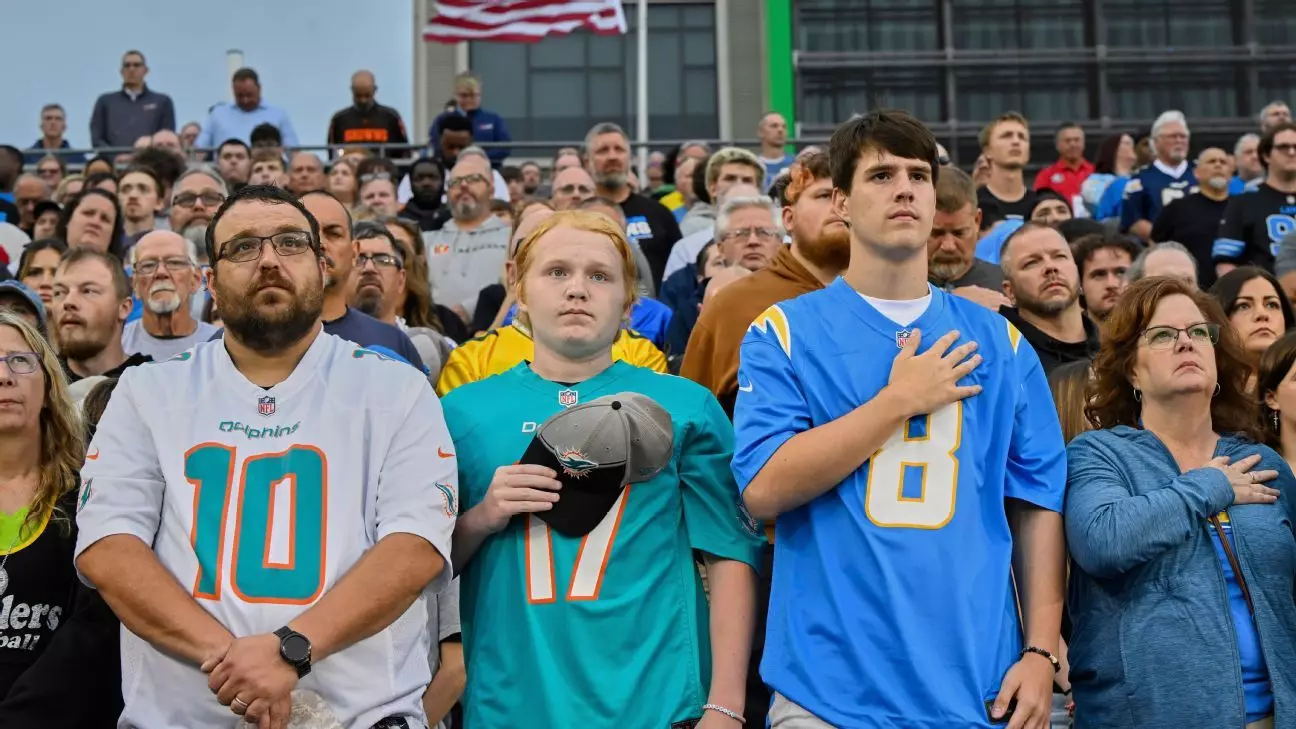The NFL, long celebrated as a bastion of athletic excellence and entertainment, now finds itself grappling with the dark reality that violence can penetrate even its most sacred spaces. The recent shooting targeting league headquarters shattered the illusion of safety that fans and players alike have traditionally associated with the sport. This horrifying act of domestic terrorism serves as a stark reminder that no amount of medals, helmets, or stadiums can shield us from the brutal realities of mental health crises and societal violence. For a league that prides itself on resilience and community spirit, being forced to confront this trauma exposes a troubling vulnerability that warrants much deeper reflection and urgent action.
A Society at Crossroads: The Layers Beneath the Arena
It’s impossible to divorce this incident from the broader societal issues that have increasingly cast shadows on American life. Rising mental health struggles, the proliferation of gun violence, and a relentless culture of outrage and alienation all converge within these tragic events. The gunman’s history of mental illness and grievance over CTE versus the lack of definitive systemic support raises uncomfortable questions: Are we genuinely addressing mental health to prevent these tragedies? Are we investing sufficiently in prevention programs, or are we merely reacting after they’ve happened? The NFL, as a reflection of societal values, finds itself at a crossroads where the line between a space of celebration and a battlefield of despair has become dangerously blurred.
In an era where social cohesion seems fraying at the edges, the league’s response—heightened security, virtual town halls, and remote work orders—strikes me as too little, too late. It’s a temporary patch on a much deeper wound. The violence exposed here echoes a national failure to foster mental well-being and to confront the pervasive issues fueling hatred and instability. If the league truly cares about its players, staff, and fans, it cannot afford to see these tragedies as isolated incidents. They demand systemic change—addressing mental health stigma, promoting community outreach, and fostering a culture that prioritizes safety beyond the physical realm.
Leadership in Turmoil: A Call for Genuine Commitment, Not Just Performative Gestures
Commissioner Roger Goodell’s public statements reflect a heartfelt concern, yet they often seem more perfunctory than transformative. His visit to the wounded employee and attendance at the police officer’s funeral convey empathy, but they also reveal an iceberg beneath the surface: a leadership apparatus that struggles to translate compassionate words into meaningful policy shifts. The league’s temporary remote work policy and increased security measures are necessary steps, but they are band-aids on a bleeding wound.
True leadership demands a proactive stance—investing heavily in mental health resources, advocating for stricter gun control policies, and establishing transparent, ongoing conversations about safety that extend beyond the game day. The league should leverage its platform to champion societal change, not simply react when tragedy strikes. The NFL must recognize its influence as a cultural institution and wield that power responsibly in shaping a safer, more inclusive environment for all involved.
The Myth of Total Safety and the Need for Cultural Reckoning
One of the most dangerous illusions in American sports—especially in the NFL—is the belief that safety can be fully guaranteed. This incident demolishes that myth, exposing a harsh truth: no arena or stadium can be immune from violence if society as a whole fails to confront its roots. The league must reckon with its role in this larger societal fabric and do more than just beef up security—it’s time to actively promote mental health awareness, community engagement, and policies that reduce the likelihood of such violence.
Furthermore, there needs to be a larger cultural shift in how we perceive mental illness and accountability. The accused shooter’s history points toward systemic neglect—by communities, mental health services, and perhaps the league itself, which has long wrestled with the toxic trope of violence as an extension of masculinity. The NFL has a moral obligation to participate in these conversations, advocating for a society where individuals are supported rather than shunned, checked rather than ignored.
As fans and citizens, we must demand more from our leagues, our leaders, and ourselves. The glitz and glamour of professional sports cannot mask the suffering that festers behind the scenes. Only through honest acknowledgment and frank dialogue can we begin to repair the fractures within our society—and restore the true safety and dignity every human being deserves.

